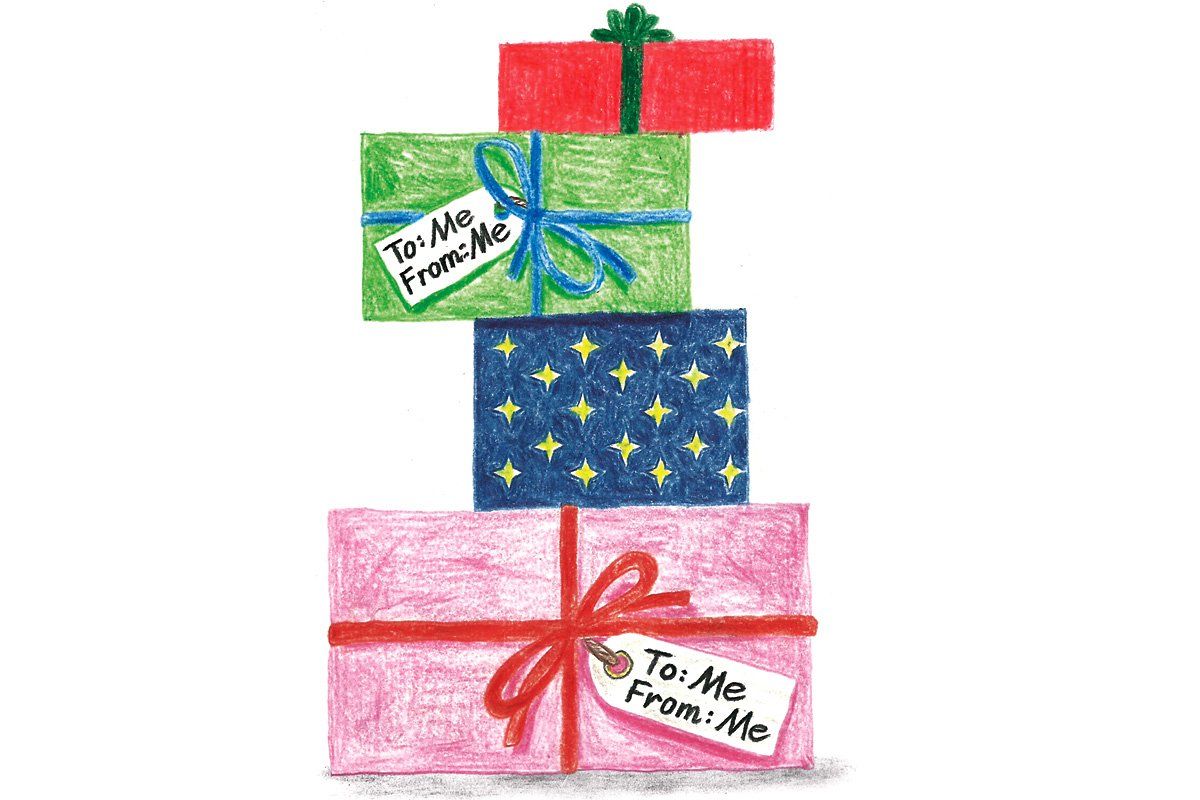
Among the throngs of Americans prowling the malls and trawling e-commerce sites, it turns out that many Christmas shoppers are looking out for themselves. Retail-research firm NPD Group in mid-December said that, thus far, about one third of consumers have engaged in what is euphemistically called self-gifting. That's up from 12 percent in a typical pre-recession year, and up from the 19 percent who said they planned to do so last year. The National Retail Federation, the dispenser of all holiday-related data, said that in 2012, nearly 60 percent of shoppers would engage in the practice.
The latest step in the evolution of our burgeoning culture of narcissism? Yes. But you don't have to be Scrooge to realize that self-gifting makes both psychological and economic sense—especially given what Americans have endured in recent years.
The post-bust era has been a long, hard, heroic slog of balance-sheet improvement. Americans have labored to save money and hack away at the huge mountain of debt they accumulated during the credit boom. According to the New York Federal Reserve, consumers have knocked down their aggregate debt load from $12.675 trillion in the third quarter of 2008 to $11.31 trillion in the third quarter of 2012; credit-card debt is off $192 billion from the peak. Americans have cut their load by spending more carefully and by engaging in that most un-American of traits: self-abnegation.
After living frugally for so much of the year—and for so many years—who can blame a parent at an Apple Store for buying herself a new iPad while she stops to get a new iPhone for her teenager? Indeed, self-gifting may actually be a function of the new abstemiousness. Let's say you've been holding off on replacing your old television. Why not buy it in November or December, when there are insane promotions and free shipping available that might not be on offer come next March? Besides, it's not like self-gifters are solely interested in self-pleasure. An NRF survey said that the typical self-gifter would spend about $140 on himself this year. For comparison's sake, the survey said the typical shopper would spent about $750 in all.
After a long period of economic madness (remember the housing bubble and the dotcom mess?) self-gifting is a sign of much-needed economic rationality. Shopping for others involves a certain amount of guesswork, and some of those guesses turn out to be wrong—with negative financial consequences. This year, for example, CEB TowerGroup projects Americans will load $110 billion onto gift cards and give them as presents. But the market-research firm says that about 1.6 percent of that total, about $1.7 billion, will go unused. Meanwhile, a large percentage of gifts wind up getting returned. Adults surveyed by BIGinsight in November 2012 found that 35 percent of people reported returning at least some of their gifts. Returns induce guilt and raise the specter of uncomfortable conversations about what happened to that giant striped sweater. But more significant, returns are bad for the environment. They lead to more trips to the mall, higher shipping costs, and the unnecessary use of packaging materials.
These days, a shopping trip is as likely to involve being trampled at Walmart as it is to involve gingerbread snaps and Christmas carols. What's more, the rise of e-commerce means shopping is now antiseptic: sit and click. With the charm gone, we have to come up with other ways to make the experience pleasurable.
As the song goes, "Have yourself a merry little Christmas."
Uncommon Knowledge
Newsweek is committed to challenging conventional wisdom and finding connections in the search for common ground.
Newsweek is committed to challenging conventional wisdom and finding connections in the search for common ground.





